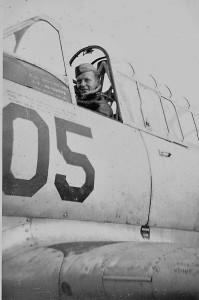I remember as if it were yesterday my Mom crying, the keening, the ancestral Irish wailing of her mother’s people, a soulful wound disgorged by screams and tears, when she learned my Dad’s brother, Charles, died of internal bleeding.
Years earlier, my uncle Charles had been shot in the chest in World War II in Italy and captured by the Nazis.
Charles was denied a blood transfusion in a Bronx hospital that would have saved his life.
President Woodrow Wilson promised that World War I would be the war to end all wars. It was not.
President Dwight D. Eisenhower, Supreme Commander of the Allied Forces in WWII, said, “There is no glory in battle worth the blood it costs.”
The “blood it costs” is the lost life of a spouse, sibling, child, relation, close friend, a loved one, leaving survivors bereft, never to know those they loved alive again.
Each of us would likely risk our lives, perhaps without a thought, on impulse, or instinct, for someone we love, to risk our life for one who makes our life whole and meaningful.
But would you do it for a nation-state hell-bent on exploiting the resources or citizens of another nation?
No doubt the ultimate sacrifice is a function, in a rational moment, of whether one believes life ends with a pause or a full stop.
A terrorist may make the reckless leap into the abyss certain that Allah will greet him “on the other side.”
How certain, however, is anyone else that “life” after death resembles anything like the consciousness we now know?
In this life we live, we know that a “person” becomes disconnected from “himself” and others by aphasia and alzheimer’s and memory loss because of lost brain function or nerve damage.
Can a personal identity so intertwined with brain function and our nervous system exist as a daimon, as a “soul,” separate and apart from our corporal self when we die?
This enticing chimera of a never-ending beatific vision after death is defied by everything we know.
We could erect no finer memorial to our war dead and injured and to us the living and loving than to rededicate our nation to peace – to avoid the loss of life.
We are at a point of national crisis. We have a war-monger in the West Wing. Each of us may feel a chill run down our spine that, by Mr. Donald Trump’s covert corrupt bargains or his demonstrated incompetence, we may be forced to fight a war that we need not and should not wage.
Mr. Trump’s isolationism and nationalism is what Einstein considered “an infantile disease … the measles of mankind.”
Mr. Trump’s proposed budget chokes funding for us at home so he may war abroad.
Mr. Trump forms alliances, like those his son-in-law secretly sought to build with Russia, and his multi-billion dollar arms sale of sophisticated killing machines to Saudi Arabia.
President Eisenhower said, in his farewell address in 1960, “We must learn how to confront our differences, not with arms, but with intellect and decent purpose.”
With what intellect and purpose does Mr. Trump talk of war in terms of seized natural resources?
Mr. Trump embraces our past enemies and adversaries in the mid-East and Russia, and indulges thuggish shoving and blatant disrespect and abuse for our historic NATO allies.
We lost about 7,000 service men and women in past mid-East misadventures.
Are we going to put boots on the ground, add our own men and women to a ground war, lining up with what “allies,” and swell further the 80,000 dead and million already displaced in the region?
Is there any hope for peace?
Not if we don’t protest like our lives and our nation’s future depends on it.
A worthy memorial to our war dead would be to work for peace instead.
It does not appear that we can get Congress to intervene to save us from war – if we don’t protest.
Robert G. Kaiser, a Washington Post editor, wrote, “The modern version of [congressional] culture is hostile to creative problem-solving.” He said, “In the ‘world’s greatest deliberative body,’ there is little deliberation.”
If we are not smart enough to make peace, and demand it, then we may only make war.

